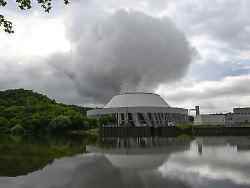Insider about winter scenario
Stress test result: Nuclear power could avert power shortages
09/02/2022, 05:41 p.m
The continued operation of the remaining German nuclear power plants until next year seems more and more likely. According to insiders, a corresponding stress test shows that a possible power bottleneck in winter could be averted. However, two of the nuclear power plants would be sufficient.
According to industry and government circles, longer running times for the two southern German nuclear power plants could avert a power shortage in winter. If coal-fired power plants are not running sufficiently, the wind is blowing only weakly and France has high electricity requirements, the reactors could avert a crisis, confidants of the Reuters news agency said with the so-called stress test of the network operators. In two of the three scenarios examined for the winter, continued operation of the two nuclear power plants would be advantageous. The third Emsland nuclear power plant in Lower Saxony, which is still in operation, is not needed.
The stress test commissioned by the Ministry of Economics was intended to show whether longer runtimes for the piles could help in the energy crisis and in extreme situations. In government circles it was said that the heads of the traffic light coalition wanted to discuss this on Saturday. The ministry said there was no final test result yet.
In the nuclear phase-out, it was actually agreed that Isar 2 in Bavaria, Neckarwestheim 2 in Baden-Württemberg and Emsland in Lower Saxony would be the last reactors to be shut down on December 31st. In the course of the Ukraine war and the energy crisis, however, calls for an extension of the service life had become louder and louder.
Politically sensitive undertaking
Economics Minister Robert Habeck from the Greens had made it clear that the reactors could do practically nothing in the fight against gas shortages. However, he will use the test without ideology to check whether they can secure the power supply. For the Greens, whose fight against nuclear energy is part of their founding story, a decision to extend the term would be critical. In Baden-Württemberg, Winfried Kretschmann is governed by a green prime minister, in Lower Saxony there are state elections in October.
A so-called stretching operation is discussed above all. The reactors would produce less in the next few months in order to be able to deliver beyond the end of the year with the available fuel elements until the end of winter. In the past, Economics Minister Habeck had accused Bavaria in particular of being partly to blame for a possible power shortage. The country has not expanded wind power and delayed the construction of the line from the north.
The energy company E.ON, as the operator of Isar 2, was open to an extension: “We could continue to operate the system technically safely. It is constantly being checked,” said CEO Leonhard Birnbaum to “Spiegel”. “A facility that is safe on December 31 would be safe the day after.” When asked about liability, the manager replied: “In any case, liability remains with us. No one else but the operator can assume responsibility for technically safe continued operation. We would also accept that.”
Problems with coal power plants
But even in Baden-Württemberg there is a lack of wind energy that could supply electricity in winter. The Ministry of Economics is particularly critical of the situation there: Several coal-fired power plants are located on the Rhine, but are suffering from the low water. “Due to the very limited inland waterway transport, the coal stocks that have been built up could quickly be reduced,” says the “Energy Supply Situation Report” from the Ministry of Economic Affairs at the end of August. The congested rail network also makes delivery by train difficult. Due to construction sites, bottlenecks in vehicles and incidents, there are delays in rail freight transport. Hard coal comes mainly along the Rhine route from North Sea ports such as Rotterdam.
In addition, electricity flows from Germany to France, since a large proportion of the nuclear power plants there are being overhauled. In addition, a lot of electricity is used for heating there in winter. However, continued operation would raise a number of questions: On the one hand, the Atomic Energy Act would have to be changed. The security checks that have been overdue for years and were only suspended because of the imminent shutdown would have to be postponed again. After the nuclear disaster in Fukushima, there were also more stringent requirements that the plants did not have to meet, even with a view to their end.
